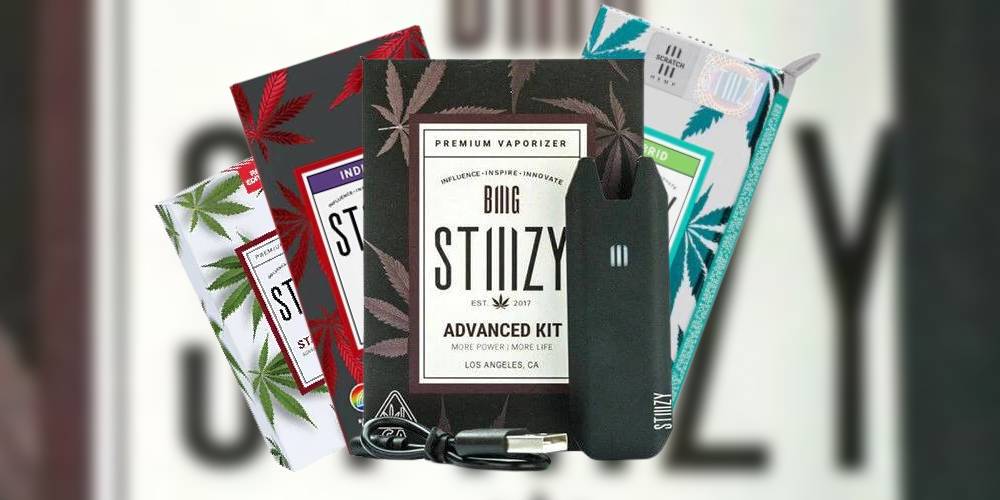Key Takeaways
- Kratom and Delta 8 offer unique effects: Kratom can energize or relax, while Delta 8 provides mild, calming sensations.
- Different body interactions: Kratom affects opioid receptors, while Delta 8 works with the endocannabinoid system.
- Legal differences: Kratom’s legality varies by region, while Delta 8, derived from hemp, is available in most areas but faces some restrictions.
- Dosage matters for kratom: Low doses of kratom stimulate; higher doses relax. Delta 8 offers consistent relaxation.
- Choose based on your needs: Kratom is versatile for both energy and relaxation, while Delta 8 is ideal for mild, steady relaxation.
What Exactly Is Kratom and Where Does It Come From?
Kratom (Mitragyna speciosa) is a tropical tree native to Southeast Asia, particularly found in Thailand, Malaysia, and Indonesia. For centuries, people in these regions have used the leaves of the kratom tree for their stimulating and relaxing effects. Traditionally, the leaves were chewed or brewed into tea for daily use. In these communities, kratom was not just a substance but a cultural staple, often used in ceremonies, for physical endurance, or as part of traditional medicine.
The active compounds in kratom are alkaloids, specifically mitragynine and 7-hydroxymitragynine. These alkaloids interact with the body’s opioid receptors, which has led to kratom being described as both a stimulant and a sedative, depending on the dose and the strain. At lower doses, users often report an increase in energy and focus, making it popular for those looking for a natural way to boost productivity. However, at higher doses, the effects are more sedative, leading to a sense of relaxation or calm.

What Is Cannabis, and How Does Delta 8 Compare?
Cannabis (Cannabis sativa) has an equally long history of use, though it has primarily been associated with its psychoactive effects. The primary active compound in cannabis is THC (tetrahydrocannabinol), which is responsible for the plant’s ability to produce a high. However, cannabis also contains a variety of other cannabinoids, including CBD (cannabidiol) and Delta 8 THC, that interact with the body in different ways.
Delta 8 THC, specifically, is a cannabinoid that has gained significant attention in recent years. While Delta 9 THC, the compound most associated with cannabis, is still the primary psychoactive agent, Delta 8 is thought to produce a milder, more manageable effect. Delta 8 users often report feeling a sense of relaxation and mild euphoria, but without the intensity or potential for anxiety that can sometimes come with Delta 9.
For those who are curious about cannabis but may be intimidated by the stronger effects of Delta 9, Delta 8 can be a great alternative. It offers a middle ground between the non-psychoactive benefits of CBD and the stronger, more potent effects of Delta 9 THC. Because of this, Delta 8 is often described as providing a “clearer” experience, allowing users to feel relaxed without being overwhelmed.
How Do Kratom and Cannabis Work in the Body?
Both kratom and cannabis interact with the body’s internal systems, but they do so in distinctly different ways. Kratom’s active alkaloids primarily bind to the opioid receptors in the brain, which can lead to effects that resemble those of certain pain relievers. However, unlike traditional opioids, kratom doesn’t carry the same level of risks, which is part of the reason it has become a popular natural alternative. The way these alkaloids interact with the body can result in a range of effects, from stimulation to relaxation, depending on the amount used.
Cannabis, including Delta 8 THC, interacts with the body’s endocannabinoid system (ECS). This system plays a crucial role in regulating many physiological processes, including mood, sleep, appetite, and pain perception. Delta 8, much like Delta 9 THC, binds to the cannabinoid receptors in the ECS, but it does so in a slightly different way, leading to a more subdued effect. While both compounds bind to the CB1 receptors in the brain, Delta 8’s binding affinity is lower, which may explain why its psychoactive effects are less potent.
Because these two plants work through different systems in the body, the experiences they produce can vary significantly. Someone using kratom might feel a more immediate shift in energy levels or a sense of calm, while Delta 8 THC is more likely to produce a steady, mild relaxation that builds gradually over time.
Are Kratom and Cannabis Legal?
One of the most significant differences between kratom and cannabis is their legal status, which can vary depending on where you live. Kratom is currently legal in most parts of the United States, but certain states and counties have imposed bans or restrictions on its sale and use. This variation in legality can make it challenging for those interested in trying kratom to find it in their local stores. However, kratom remains widely available online through vendors that comply with local regulations.
Cannabis, on the other hand, is a bit more complicated. In the United States, cannabis is still illegal at the federal level, although many states have passed laws legalizing its use for medical or recreational purposes. Delta 9 THC, the primary psychoactive component of cannabis, is restricted in areas where cannabis is illegal, but Delta 8 exists in a legal gray area. Since Delta 8 can be derived from hemp, which was legalized under the 2018 Farm Bill, it is technically legal in most states, though some have moved to ban it specifically.
Both kratom and Delta 8 users should familiarize themselves with the laws in their area before purchasing or using these products. While both substances can be accessed relatively easily in regions where they are legal, it’s important to stay informed about any potential changes in legislation that could affect their availability.
Which Option Is Easier to Find?
In terms of availability, cannabis products, particularly Delta 8, are generally easier to find in areas where cannabis is legal. Many dispensaries offer a wide range of Delta 8 products, including gummies, vapes, and tinctures. Additionally, Delta 8 can often be found in wellness shops, vape stores, and even some convenience stores, particularly in states where hemp-derived products are legal.
Kratom, while also widely available online, can be harder to find in physical stores depending on where you live. In regions where kratom is banned or restricted, individuals may have to rely on online vendors, which adds an extra layer of complexity to the purchasing process. However, in areas where kratom is legal, specialty stores and head shops often carry a variety of kratom products, including powders, capsules, and extracts.
What Are the Uses for Kratom and Delta 8?
Kratom and Delta 8 are both used by individuals looking for natural alternatives to promote relaxation, focus, or general well-being. Kratom, with its dual stimulating and relaxing properties, is often chosen by people who want to increase energy and focus during the day and then use higher doses to wind down in the evening. Different strains of kratom are known for producing different effects, with some providing more energy and others being more calming.
Delta 8, on the other hand, is commonly used by those who want to experience the benefits of cannabis without the intensity of Delta 9 THC. Many users turn to Delta 8 for relaxation, but it’s also popular among those looking for a mild sense of euphoria that doesn’t interfere with daily tasks. Delta 8 products, such as gummies and vapes, are easy to use and offer a consistent experience, making them a go-to option for many people.
How Do You Decide Which Is Better for You?
Choosing between kratom and Delta 8 can come down to several factors, including your personal goals, legal considerations, and how your body responds to each substance. If you’re looking for something that can provide both energy and relaxation depending on how you use it, kratom might be the better option. Kratom’s versatility makes it a popular choice for people who want an all-in-one solution that can adapt to their changing needs throughout the day.
On the other hand, if you’re primarily looking for relaxation or a mild, manageable sense of euphoria, Delta 8 may be more suited to your needs. Delta 8 is often described as providing a “clear-headed” high, allowing users to relax without feeling overly sedated or disconnected from their surroundings.
Can Kratom and Delta 8 Be Used Together?
Some people wonder whether kratom and Delta 8 can be combined to enhance their effects. While there isn’t much scientific research on the interaction between these two substances, anecdotal reports suggest that some users do experiment with combining them. Because kratom and Delta 8 work on different systems in the body, they may produce complementary effects when used together, but this is something that should be approached with caution.
As with any substance, it’s essential to start with small doses and monitor how your body reacts before deciding whether to combine kratom and Delta 8. Everyone’s body chemistry is different, and what works for one person may not work the same way for another.

Which Substance Has More Public Acceptance?
Public perception is another factor to consider when choosing between kratom and Delta 8. In recent years, cannabis has seen a surge in acceptance, particularly with the legalization of marijuana in several states and the growing popularity of hemp-derived products like CBD and Delta 8. Cannabis has become more mainstream, and products containing Delta 8 are widely available in many places where cannabis remains illegal.
Kratom, on the other hand, is still somewhat more controversial. While it has a dedicated user base, it has faced scrutiny from regulatory agencies and public health officials. This is largely due to its interaction with opioid receptors and concerns about its safety, even though it is not classified as an opioid. Despite this, kratom’s popularity continues to grow, and advocates are pushing for its wider acceptance and regulation.
Conclusion
Ultimately, the choice between kratom and cannabis, particularly Delta 8, depends on what you’re looking for in a natural remedy. Both substances offer unique benefits, but they interact with the body in different ways and produce different effects. Kratom’s versatility as both a stimulant and relaxant makes it appealing to those who want more control over their experience, while Delta 8 offers a milder, more consistent form of relaxation without the intensity of Delta 9 THC.
Before making your decision, it’s essential to do your research, consult local laws, and consider how each option fits into your lifestyle. Whether you choose kratom or Delta 8, understanding the differences between these two plants can help you make an informed decision that best suits your needs.



